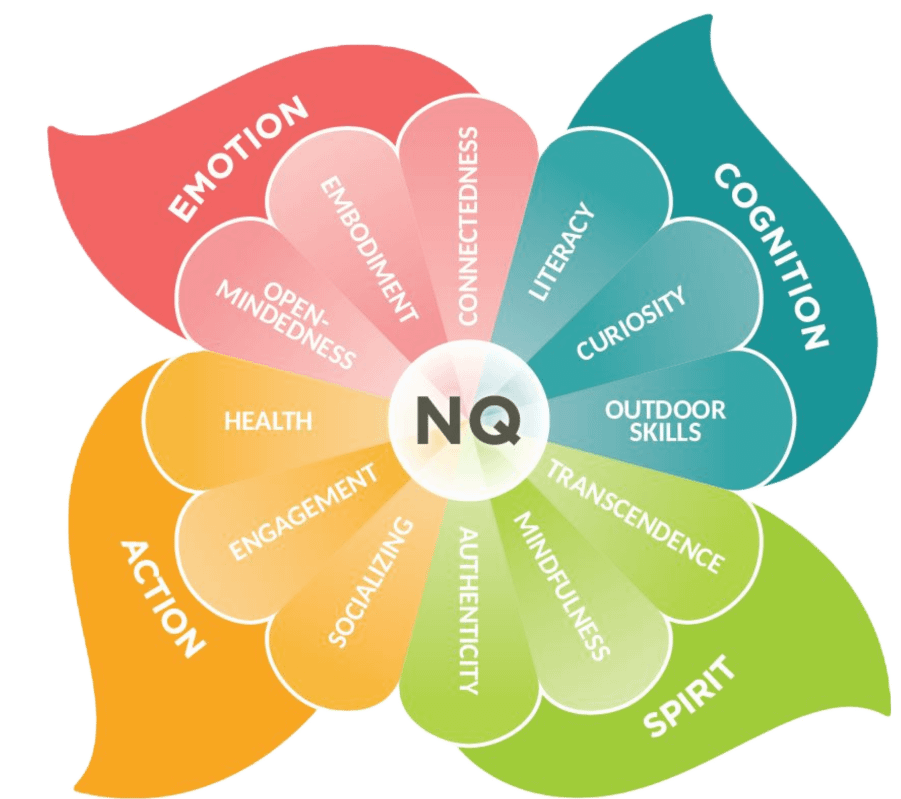Project outputs
What are the four dimensions of NQ?

Cognition
taps into the intuitive and experiential competencies of environmental knowledge, attitudes and behaviours.:
- Literacy: an intuitive understanding of the dimensions, elements, patterns and processes of nature
- Curiosity: an interest in nature and awareness of the intrinsic value of nature
- Outdoor skills: having practical knowledge and basic skills for staying outdoors and living in nature

Emotion
reflects competencies to affectively connect to nature through direct embodied experience and having an open mind to the pleasant as well as the challenging and more uneasy side of nature:
- Connectedness: identifying oneself as part of nature, caring for other living beings, living in harmony and balance with nature
- Embodiment: a direct connection with nature through physical contact, which also implies resilience against more adverse conditions in nature, such as bad weather or dirt
- Open-mindedness: enjoying all aspects of nature, even the things that might be scary or disgusting
Spirit
refers to competencies to connect to nature in a spiritual manner, based on the realisation that the natural world that surrounds us is alive and intelligent, just as humans are:
- Transcendence: a ‘flow experience’ (also known as ‘magical moments’ or ‘peak experiences’) during which one feels lifted beyond the hustle and bustle of daily life and connected to something bigger
- Mindfulness: having a mindful sensory experience of nature
- Authenticity: the capacity to be true to oneself, to be an authentic person guided by one’s own inner principles, as a precondition for, and outcome of, spiritual experiences with nature
Action
includes competencies to use one’s cognitive, emotional and spiritual connection to nature for regulating one’s own health and the planet’s health, as well as for socializing with peers:
- Health: recognising and using the relaxing and empowering capacities of nature for self-regulation and health
- Engagement: being motivated and capable to engage in actions that make the planet greener and more sustainable
- Socialization: choosing nature as a place to spend time with friends and using a shared interest for nature to strengthen connections with peers




